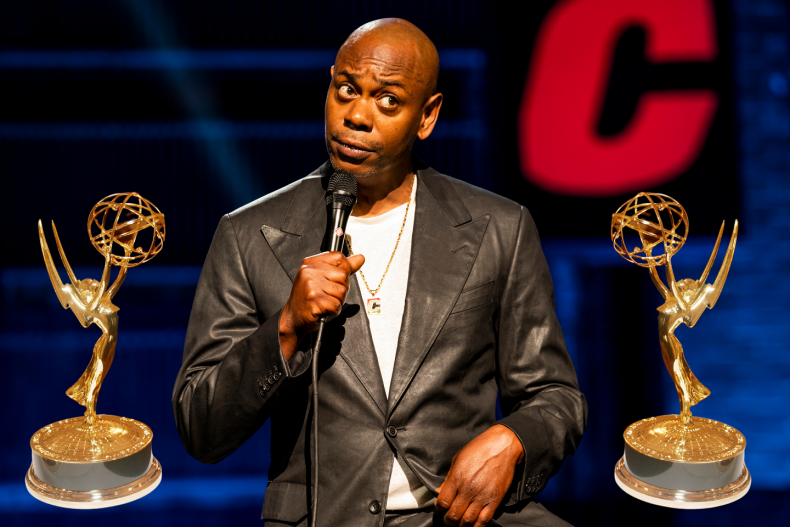Imagine these headlines:
Salman Rushdie dumped by publisher after The Satanic Verses offends the Ayatollah of Iran. Victory for free expression!
Lenny Bruce’s sold-out show in New York City canceled after religious staffers at the club decry foul language. Victory for artistic expression!
Prince concert canceled after Tipper Gore complains about vulgar lyrics in “Darling Nikki.” Victory for free speech!
You’d have to have a pretty odd sense of history to consider any of those could-have-been scenarios as victories for freedom of expression. Yet a surprising number of people are asserting exactly that when it comes to a Minneapolis venue called First Avenue that canceled Dave Chappelle’s comedy show this week.
Critics lined up no shortage of strawmen to justify First Avenue’s cancellation decision, hyping the fact that private venues are under no obligation to host any speaker (good thing no one argued that they are!) or that the cancellation is a win for the expressive rights of the workers at the venue who disapproved of the show.
As podcaster Michael Hobbes put it on Twitter, “workers boycotting a show by a controversial public figure is not remotely a threat to freedom of speech.” He was joined by many others, including Grand View University Professor Kevin Gannon who called the situation “a classic case of that ‘marketplace of ideas’ that you guys love functioning as it should.” “I’m for the free expression of the venue workers, too, not just Chappelle’s,” agreed Davidson College Professor Issac Bailey. “That’s why I know this is not a threat to free expression.” The opposite, in fact, was the case, argued Bailey; the workers, venue, and Chappelle all “used their free expression to stand up for what they believe is right. That’s as it should be.”
Nobody is denying that the employees have the First Amendment right to demand the show be canceled. But do we really think a publisher dropping Salman Rushdie, a comedy club dumping Lenny Bruce, or a concert venue dumping Prince in the face of demands from critics would not be a net loss for free expression?
We are lucky enough to live in a country where people can confuse the democratic right to free speech as guaranteed under the First Amendment and the older, philosophical principle of freedom of speech. Indeed, a private venue has its own free speech and associational rights to not have a comedian perform there. But simply because the First Amendment—rightly!—doesn’t require clubs to host comedians doesn’t mean that canceling a show in the face of social pressure is an equally good outcome for free expression.

Mathieu Bitton/Netflix
The irony here is particularly thick. First Avenue has long been known for promoting controversial artists, most notably, Prince, the artist whose work is arguably most responsible for prompting the 1980s-era congressional hearings on music decency and even the “Parental Advisory” label on albums. First Avenue even featured in Prince’s film, “Purple Rain.”
Would critics who argue Chappelle should’ve been canceled also celebrate the cancellation of Prince and other artists of the eighties as a victory for the free speech of Tipper Gore or the Parents Music Resource Center? I doubt it.
Comedians like Chappelle are unique in their willingness to wade into sensitive topics like race and transgender issues, which most people are unwilling to talk openly about for fear of social consequence. They depend on institutions that are willing to tolerate or even embrace envelope-pushing. Publishers canceling book contracts, record stores pulling albums from the (real or virtual) shelves, and venues canceling artists of all descriptions may be within their constitutional rights, but that’s no reason to celebrate them. These businesses are not self-contained. They are cultural institutions, and every decision to drop a writer, artist, musician or comedian because some members of the community do not like their work is a loss for both freedom of expression and artistic freedom.
If one of the most popular comedians alive today can quite literally be canceled for his expression, imagine the chilling message that sends to the thousands of other artists of all kinds who might have transgressive or unpopular ideas.
No artist in an earlier era would see this as a victory for free expression. They would see it as a victory for conformity. They would see it as a victory for a small number of people deciding for others what they should be allowed to see. And they would be correct.
Fostering a culture that respects free speech does not simply require meeting the bare minimum legal standard for tolerance set by the First Amendment. A liberal culture, properly understood, is one in which we accept the idea that it’s not up to us—or to those who oppose us—to decide what other people should or should not watch, read, or listen to.
Just as people have the right to demand that Dave Chappelle be canceled, we have the right—and arguably, the moral responsibility—to push back against those who would attempt to decide for everyone what is fit to be heard. If we don’t push back against this trend, our society may soon find itself with fewer artists willing to push boundaries and fewer outlets for authentic artistic expression.
And we’ll all be worse off for it.
Greg Lukianoff is president and CEO of the Foundation for Individual Rights and Expression.
The views expressed in this article are the writer’s own.
